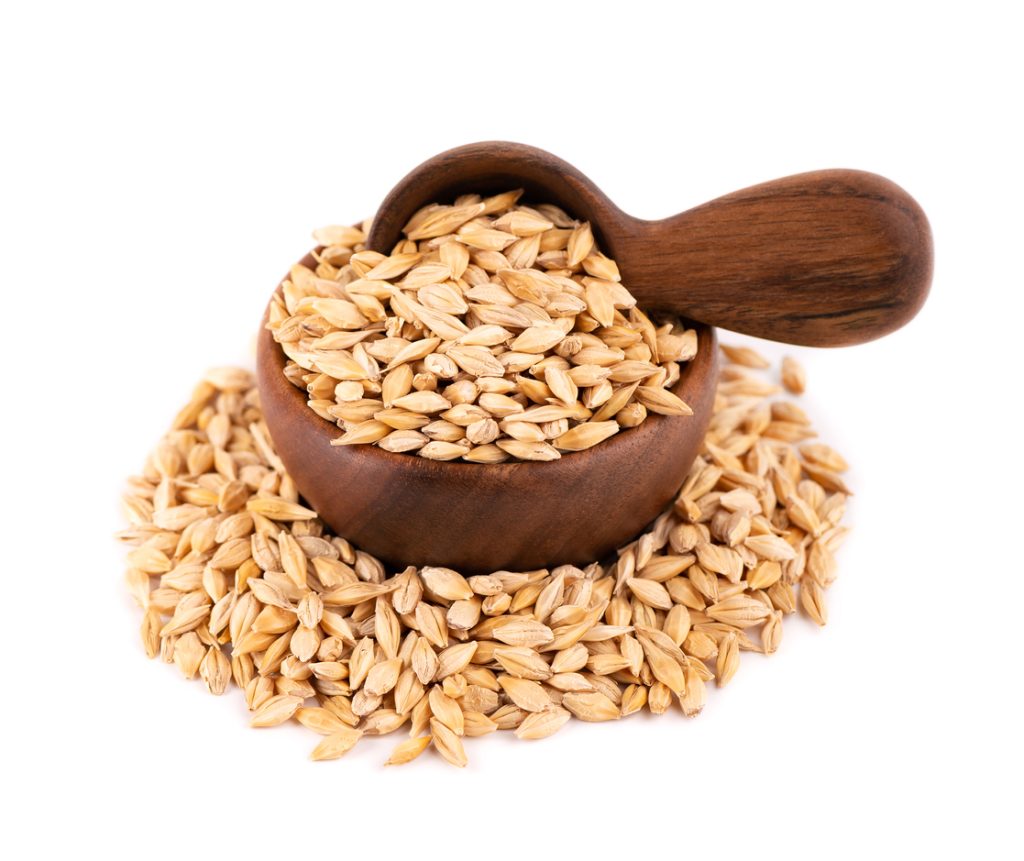Germinated Barley (Malt)

What is Germinated Barley (Malt)?
Germinated Barley (mai ya, 麦芽), also known as Malt or Fructus Hordei Germinatus, is a type of cereal grain that undergoes a drying process called malting. To produce Malt, Barley corn is first soaked in water at a certain temperature and humidity, and its sprouts are then dried with hot air to stop its germination. By sprouting the Barley, the grain’s enzymes are unlocked through an ancient, natural process that supposingly releases the whole grain’s nutritional power.
Malt has been used in ancient cultures, such as that of Early Egyptians, for a long period of time. It was also a nutrition trend in American culture, conjuring fond memories of vintage Malt shops, Ovaltine malted milk and other health supplements for children.
Malt can be further processed to produce liquid or powder sweeteners called Malt extracts that are used in beverages, baked goods, cereals, snacks and other foods.
In Traditional Chinese Medicine (TCM), Malt falls under the category of ‘Herbs that relieve Food Stagnation’. Such herbs possess digestive properties that promote the movement of food in the body.
Neutral in nature, Malt does not affect the yin-yang balance in the body. Sweet in taste, Malt can help to slow down acute reactions, detoxify the body and has a tonic effect on the body by replenishing qi and blood. In particular, the herb targets the Spleen and the stomach.
Functions and Benefits of Germinated Barley (Malt)
Traditional Chinese Medicine (TCM) shows that Malt has the following health benefits.
Malt can invigorate the Spleen and promote digestion, especially with regards to the digestion of starch food such as rice, noodles and potatoes. For starch food digestion, Malt can be combined with herbs such as Hawthorn Berries (shan zha, 山楂), Medicated Leaven (shen qu, 神曲) and Chicken Gizzard Lining (ji nei jin, 鸡内金) to enhance its effectiveness. The herb is also used to improve gut health and treat symptoms of indigestion such as infantile indigestion, poor appetite and distention after meals due to Spleen Deficiency, as well as cystic fibrosis.
Malt can stop lactation as well. Oral consumption of Malt may help to terminate lactation, as well as breast distension and pain caused by milk accumulation. In addition, Malt can help to soothe the Liver. For hypochondriac pain, gastric or abdominal pain caused by Liver Qi Stagnation, or disharmony between the Liver and stomach, Malt can be combined with herbs such as Fructus Meliae Toosendan (chuan lian zi, 川楝子) and Bupleurum Roots (chai hu, 柴胡) to enhance its effectiveness.
Modern studies suggest that Malt may assist with athletic recovery. Malt extract is drawing renewed attention as a natural functional ingredient that is packed with powerful health benefits that may help athletes to replenish energy, reduce fatigue and recover from athletic damage. Malt may also reduce the risk of heart problems by helping to lower cholesterol levels. Containing fiber, potassium, folate and vitamin B6, Malt can reduce the risk of cardiac diseases, reduce insulin activity, reduce plaque formation and encourage cholesterol breakdown. Packed with antioxidant properties, Malt may also help to fight signs of ageing and prevent chronic diseases.
Malt may improve one’s mood by boosting one’s happiness levels. Containing Hordenine, a plant-based and naturally occurring compound that is found to lift one’s spirits, Malt may help to activate the dopamine D2 receptor which causes ‘feel-good’ effects. It may also sharpen one’s mental focus and heighten energy levels.

How to Use Germinated Barley (Malt)
The recommended daily dosage of Malt is 10 – 15g, when decocted in water for oral consumption. Some healthcare practitioners may increase the dosage to 30 – 120g, depending on the exact condition being treated and the method of administration.
Both dried and fresh Malt can be found in many herbal shops and specialty markets. Raw Malt is usually used to promote digestion and invigorate the Spleen, while stir-baked Malt is usually used to stop lactation and release distention.
Cautions and Side Effects of Germinated Barley (Malt)
Malt should not be used by nursing mothers who wish to continue lactating. If you are not experiencing Food Stagnation, do use this herb with caution as well. Do note that long-term consumption of this herb may cause damage to one’s Kidneys.
In addition, as the chemicals in Malt may promote contractions in women during childbirth, it should not be taken by women who are pregnant or trying to get pregnant. Also, when used with anti-diabetic drugs such as insulin, tolbutamide and glyburide, it may cause a synergistic effect that causes hypoglycemia.
We strongly encourage you to consult your healthcare provider before deciding to add Malt to your healthcare routine.
Summary
Here is a summary for Germinated Barley (Malt):
- Herb name (Chinese): 麦芽
- Herb name (Pin Yin): mài yá
- Herb name (English): Germinated Barley
- Herb name (Botanical): Fructus Hordei Germinatus
- Origin of species: Hordeum vulgare L
- Part(s) of herb used: Germinated ripe fruit
- Geo-specific habitat(s): All parts of China
- Taste(s) & Properties: Sweet; Neutral; Administrates the Spleen and stomach meridians
- Actions: Relieves indigestion resulting from intake of foods rich in starch; Relieves breast tenderness; Stop production of milk supply after child weaning
References
Donkor, O. N., Stojanovska, L., Ginn, P., Ashton, J., & Vasiljevic, T. (2012). Germinated grains–Sources of bioactive compounds. Food chemistry, 135(3), 950-959. [Accessed on 11th January 2023]
Nelson, K., Stojanovska, L., Vasiljevic, T., & Mathai, M. (2013). Germinated grains: a superior whole grain functional food?. Canadian Journal of Physiology and Pharmacology, 91(6), 429-441.[Accessed on 11th January 2023]
Mitsuyama, K., Saiki, T., Kanauchi, O., Iwanaga, T., Tomiyasu, N., Nishiyama, T., … & Sata, M. (1998). Treatment of ulcerative colitis with germinated barley foodstuff feeding: a pilot study. Alimentary pharmacology & therapeutics, 12(12), 1225-1230. [Accessed on 11th January 2023]
Share this article on
